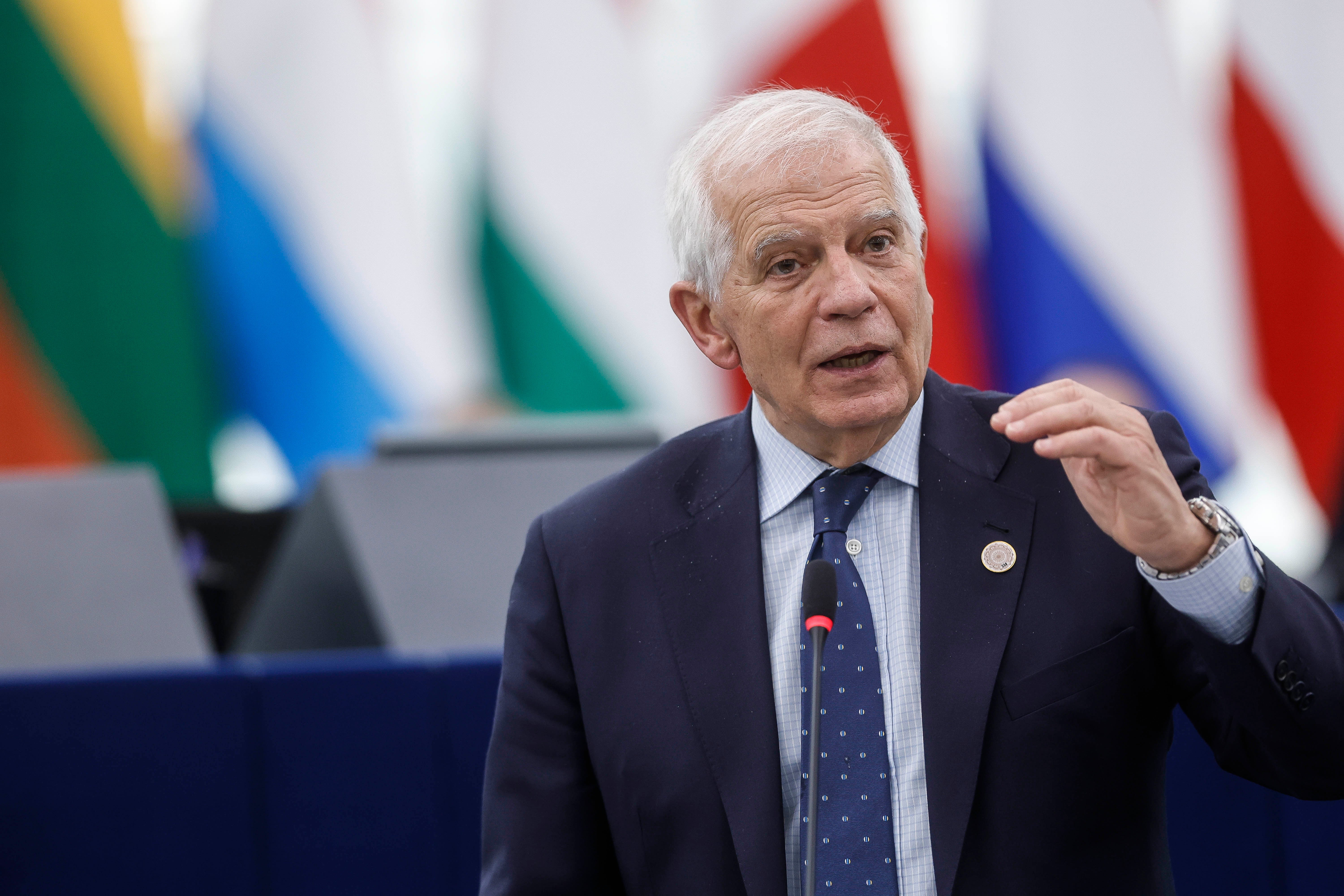Official: EU foreign policy chief unwelcome in Israel
Israel has signaled to the European Union’s foreign policy chief, Josep Borrell, that he is not welcome to visit

Your support helps us to tell the story
From reproductive rights to climate change to Big Tech, The Independent is on the ground when the story is developing. Whether it's investigating the financials of Elon Musk's pro-Trump PAC or producing our latest documentary, 'The A Word', which shines a light on the American women fighting for reproductive rights, we know how important it is to parse out the facts from the messaging.
At such a critical moment in US history, we need reporters on the ground. Your donation allows us to keep sending journalists to speak to both sides of the story.
The Independent is trusted by Americans across the entire political spectrum. And unlike many other quality news outlets, we choose not to lock Americans out of our reporting and analysis with paywalls. We believe quality journalism should be available to everyone, paid for by those who can afford it.
Your support makes all the difference.Israel has signaled to the European Union’s foreign policy chief, Josep Borrell, that he is not welcome to visit following critical comments he made about Israeli policies in the occupied West Bank, Israeli officials said Wednesday.
The incident marked the latest sign of deteriorating relations between Israel’ s new far-right government and some of its closest allies.
Borrell upset Israel with an article published last week that Israeli officials said equated the Israeli victims of Palestinian attacks with militants killed in Israeli army operations.
“Being honest means acknowledging that extremism is rising on both sides. Indiscriminate attacks and violence are taking many lives,” Borrell wrote in “Project Syndicate.”
“Violence on the part of Israeli settlers in the West Bank is increasingly threatening Palestinian lives and livelihoods — almost always with impunity. Moreover, Israeli military operations frequently cause civilian Palestinian deaths, often without effective accountability,” he added.
Israeli Foreign Minister Eli Cohen condemned the comments in a conversation with Borrell on Tuesday, the Israeli Foreign Ministry said.
“There is no room for comparison or balancing between the victims of terrorism on the Israeli side and the Palestinian terrorists supported by the Palestinian Authority,” he said.
An Israeli official said Wednesday that while there were no official plans or requests for Borrell to visit, the Israeli government had made it clear to him that he is not welcome at the current time.
“He’s not banned,” the official said, speaking on condition of anonymity because he was not authorized to discuss the matter on the record. “We don’t think it’s a good time to come.”
In Brussels, European Commission spokesperson Peter Stano said Borrell had not been prevented from entering Israel because he has not been trying to visit.
“We are not aware about any ban or about any decision by the official Israeli authorities not allowing” Borrell to visit.
He added that Borrell’s comments reflected the official positions of the 27-nation EU.
Israel has close political and economic relations with many European states. Prime Minister Benjamin Netanyahu was set to travel to Germany on Wednesday, a week after an official visit to Italy.
But Israel and the EU have repeatedly differed over the years over Israel's treatment of the Palestinians, Israeli settlement construction and the lack of progress in peace talks.
Borrell’s article lamented that “neither the Israeli side nor the Palestinian side is ready for peace.” He called on Palestinian factions “to renounce terrorism and overcome their political divisions,” while he urged Israel to stop building settlements on occupied land claimed by the Palestinians, to halt settler violence and to offer to negotiate an independent Palestinian state.
The Palestinians are currently divided between two governments — the internationally recognized Palestinian Authority, which administers semi-autonomous zones in the occupied West Bank, and Hamas, the Islamic militant group that governs the Gaza Strip. The PA is weak, unpopular and has become increasingly autocratic, while Hamas refuses to accept Israel’s right to exist.
Prime Minister Benjamin Netanyahu’s new government is dominated by ultranationalists who oppose Palestinian independence and further expansion of settlements, now home to some 700,000 Israelis.
The United States, Israel's closest ally, has criticized Israeli settlement announcements by Netanyahu's government and ongoing settler violence against Palestinians. In a departure from standard customs, U.S. officials did meet this week with Israel's finance minister, a far-right politician and leader of the settlement movement.
Borrell said he was not announcing a European peace initiative, and instead called “for exploring what we can all contribute to Israeli-Palestinian peace once it comes.”